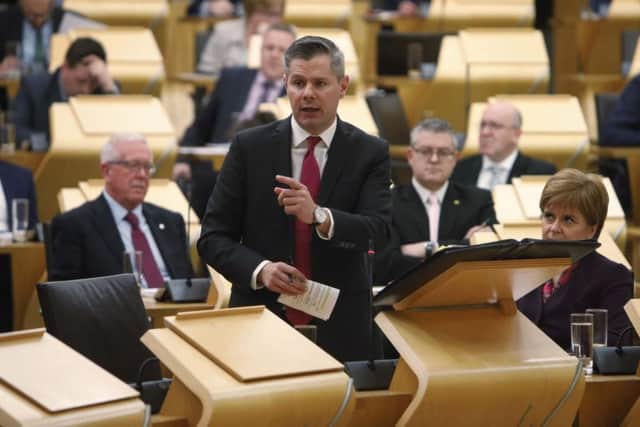John McLaren: Scottish budget likely to unravel as spending felt


Despite the extra Barnett consequential’s money from the UK Budget, the day-to-day (resource) Scottish budget actually fell in real terms (i.e. its spending power is reduced, after adjusting for inflation) moving from financial year 2018-19 to 2019-20.
This appears to be associated with the Scottish Fiscal Commission having revised down Scottish income tax take by a considerable sum.
Advertisement
Hide AdAdvertisement
Hide AdAs a result, and despite the finance secretary foregoing any increase in the higher tax threshold, Scottish income tax revenue fell, when it should have increased given the policy choice.
This is a big worry for future budgets.
However, we will have to wait to understand this better as the finance secretary did not refer to it in his speech and it was barely brought up in the debate that followed.
Despite the talk of a good deal for local government, the general resource grant (used to support day-to-day spending) fell, in cash terms, by almost £400 million.
However, the finance secretary was helped out by a big rise in non domestic rates income (NDRI) that supports local government spending.
It seems clear that the Scottish Government take these two sources together in determining a settlement in this area, rather than NDRI being seen as an autonomous funding source for local government.
Further gains were seen in specific resource grants but this may be of limited use in terms of funding the core public services provided by local government.
Despite all the talk of extra NHS funding, only just over half of the health budget’s £724 million increase actually ends up with the NHS.
Instead, it was other, non-NHS, areas of health spending that benefitted the most (in percentage terms), including primary care services and support for social care.
Advertisement
Hide AdAdvertisement
Hide AdWhat the overall plan, for NHS spending in particular and health spending in general, is remains as clear as mud.
One area that has done well is investment (capital spending) which rises by 9 per cent in real terms in 2019-20.
So is there a plan, cunning or otherwise, behind all this?
If there is it’s difficult to discern it. The SFC’s contributions, and the associated increased Scottish revenue powers, are making for increasingly difficult budget decisions.
The degree to which higher taxes in Scotland are feeding through to higher spending is questionable, versus what would otherwise have been available using the old system.
The finance secretary may have been able to disguise this on the day of the budget but it is likely to increasingly unravel as time goes on.
It would appear that Brexit is not the only major headache that the finance secretary is facing.
l John McLaren, Scottish Trends